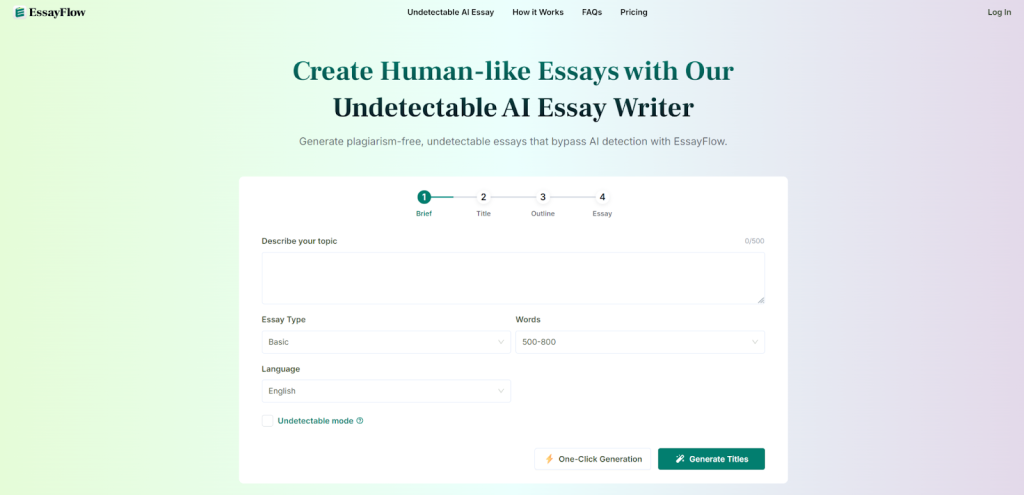If you’re looking for the perfect free tip to attain education for free in Japan, then you’re in the right place. Japan is one of the wealthiest countries in terms of culture and sight. But, one interesting fact about this country is its generosity in education for international and native students. Studying in Japan for free or reducing your financial burden can be an excellent option for many international students. So, if you’re seeking a detailed guide on achieving this, this article is for you.
Understanding the Opportunities
Studying in Japan doesn’t have to be expensive; you can take advantage of the land’s many opportunities. Japan offers several ways for international students to study tuition-free or with reduced costs. These opportunities primarily revolve around scholarships, exchange programs, and special initiatives promoting global education and cultural exchange.
| Scholarship Type | Description | Examples |
|---|---|---|
| Government Scholarships | Offered by the Japanese government | MEXT Scholarship, JASSO Scholarships |
| Private University Scholarships | Offered by individual Japanese universities | Keio University, Waseda University, Sophia University |
| Private Foundation Scholarships | Funded by private companies or organizations | The Japan Foundation, Canon Foundation, Daiwa Anglo-Japanese Foundation, Toyota Foundation |
| Exchange Programs | Offered through partnerships between universities | University Exchange Programs, Language and Cultural Exchange Programs |
What we will cover?
#1.Scholarships,Grants & Exchange Programs
A scholarship is one of the most effective gateways to study for free in Japan. Because they provide different types of scholarships for international students like you who are interested in learning, below are some ways you can get scholarships in Japan.
1. Government Scholarships
Government scholarships are the easiest and most popular method of studying for free in Japan. The Japanese government sponsors many scholarship programs that can cover your tuition fees, living expenses, and travel costs. In case you’re overwhelmed, we’ve sorted these scholarships for you.
Since 1954, the Japanese government, through the MEXT, has opened its doors to international students, offering the chance to study in Japan for free. The MEXT scholarships are provided by the Ministry of Education, Culture, Sports, Science and Technology (MEXT); these scholarships cater to research students, teacher training students, undergraduate students, Japanese studies students, college of technology students, specialized training college students, and Young Leaders Program (YLP) students.
The most exciting part is that they cover tuition fees and provide a monthly stipend. This means you do not need to pay fees and get some cash to keep you going throughout your studies in Japan. To acquire the scholarship, your applications must be submitted via Japanese embassies or consulate-generals abroad or directly to Japanese universities. Don’t be late!
MEXT Scholarship
Awarded by- Amount: 144,000 yen/month
- Deadline: October 15, 2024
- Level: PhD Postgraduate Undergraduate
- Type: Fully Funded
Another way to study in Japan for free is through JASSO scholarships. Administered by the Japan Student Services Organization (JASSO), these scholarships are available to international students with financial needs, covering living expenses and partial tuition fees. JASSO scholarship can help you cut off some financial burdens and allow you to study conveniently without worrying too much about costs.
Find full list of scholarships in Japan for international students here.
2. Private Scholarships
If you don’t know, many Japanese universities also offer scholarships for international students. So there’s a chance of getting into a private school. However, some scholarships may be merit-based, need-based, or specifically targeted at students from specific regions or academic fields. While most of these universities may offer incomplete tuition-free scholarships, they are gateways to studying in Japan for free. Some great options for private universities include:
- Rotary Peace Fellowships
- Keio University
- Waseda University
- Sophia University
Join our Telegram Channel to Get the Latest International Scholarship Alerts and Tips.
Even more, you can get a scholarship through a private foundation. These types of scholarships are funded by private companies or organizations. The scholarships usually align with the goals and ethos of the sponsoring entity, supporting students in specific districts, fields of study relevant to the company, or individuals from designated countries or regions involved in the enterprise’s exchanges. Some of these privately funded scholarships are;
- The Japan Foundation: You can get various scholarships and grants that support international cultural exchange and Japanese language education here.
- The Canon Foundation: This foundation provides research fellowships primarily to European and Japanese researchers in science and humanities.
- The Daiwa Anglo-Japanese Foundation: Offers grants and scholarships to support closer links between the UK and Japan through academic and cultural exchange.
- The Toyota Foundation: Provides grants and scholarships to support research and projects related to social innovation and human development in Japan and Asia.
These foundations support academic, cultural, and social initiatives through scholarship programs in Japan and internationally. Scholarships can change yearly, so it’s always best to check the university website for the latest scholarship information and application deadlines. It’s advisable to check each university’s website or contact their international office for details and application procedures.
| Scholarship Type | Description | Examples | Website |
|---|---|---|---|
| Government Scholarships | Offered by the Japanese government | MEXT Scholarship | MEXT Scholarship |
| Government Scholarships | Offered by the Japanese government | JASSO Scholarships | JASSO Scholarships |
| Private University Scholarships | Offered by individual Japanese universities | Keio University | Keio University Scholarships |
| Private University Scholarships | Offered by individual Japanese universities | Waseda University | Waseda University Scholarships |
| Private University Scholarships | Offered by individual Japanese universities | Sophia University | Sophia University Scholarships |
| Private Foundation Scholarships | Funded by private companies or organizations | The Japan Foundation | The Japan Foundation Programs |
| Private Foundation Scholarships | Funded by private companies or organizations | Canon Foundation | Canon Foundation Fellowships |
| Private Foundation Scholarships | Funded by private companies or organizations | Daiwa Anglo-Japanese Foundation | Daiwa Foundation Scholarships |
| Private Foundation Scholarships | Funded by private companies or organizations | Toyota Foundation | Toyota Foundation Programs |
| Exchange Programs | Offered through partnerships between universities | University Exchange Programs | Varies by university |
| Exchange Programs | Offered through partnerships between universities | Language and Cultural Exchange Programs | Varies by program |
3. Exchange Programs
Participating in exchange programs through your home university can also be a pathway to studying in Japan for free or at reduced costs. These programs often involve tuition waivers or financial assistance from sending and receiving institutions. The most common ones include
Student Exchange Programs:
- University Exchange Programs: These are bilateral agreements between universities that allow students to study abroad for a semester or academic year.
- Language and Cultural Exchange Programs: Designed for language learning and immersion, often involving homestays or cultural activities.
Research Exchange Programs:
- Visiting Researcher Programs: Offered by universities and research institutions to facilitate short-term research collaborations.
- Fellowships and Grants: These are sponsored by organizations like JSPS (Japan Society for the Promotion of Science) or private foundations to support research projects in Japan.
Internship and Work Exchange Programs:
- Internship Programs: You can get this from companies and organizations who want to provide hands-on work experience in Japan.
- Professional Exchange Programs: These programs allow professionals to learn about Japanese business practices and culture through short-term placements or exchanges.
Cultural Exchange Programs:
- Youth Exchange Programs: These programs are organized by governments or NGOs to promote cultural understanding among young people.
- Arts and Performance Exchange Programs: They facilitate cultural exchanges through exhibitions, performances, and workshops.
Government-Sponsored Programs:
- JET Programme (Japan Exchange and Teaching Programme): The Japanese government sponsors this program, which brings foreign language teachers and coordinators to local communities in Japan.
- MEXT Scholarships: The Ministry of Education, Culture, Sports, Science, and Technology (MEXT) offers this scholarship to support international students studying in Japan.
4. Special Initiatives and Grants
A lot of organizations are also involved in making learning accessible for you. These organizations, foundations, and corporations in Japan offer grants or funding opportunities for international students. These opportunities are usually aimed at fostering global cooperation and academic exchange. For instance, The ADB Japan Scholarship 2024 at the University of Tokyo, Japan, is a program funded by the Asian Development Bank (ADB) and managed by the University of Tokyo. It offers financial support to students from ADB member countries pursuing graduate studies at the university.
The scholarship includes coverage for your tuition fees, a monthly stipend, and travel costs to grow future leaders who will contribute to the development of the Asia-Pacific region. Another organization is the Ashinaga Africa Initiative (AAI), a fully funded scholarship by the Japanese NGO Ashinaga Foundation. It supports undergraduate students who have lost one or both parents by covering tuition, accommodation, travel, and other necessary fees.
#2.Explore Low-Tuition Universities
Apart from scholarships, you can cut off excess expenses and get an almost free education from low-tuition universities. As we all know, public universities in Japan generally have lower tuition fees than private institutions. Some of them include;
Low-Tuition National and Public Universities
- Kyoto University: Undergraduate: ¥535,800 (~$3,700), Graduate: ¥535,800 – ¥804,000 (~$3,700 – $5,500)
- Kyushu University: Undergraduate: ¥535,800 (~$3,700), Graduate: ¥535,800 – ¥804,000 (~$3,700 – $5,500)
Low-Tuition Private Universities
- Akita International University (AIU): Undergraduate: ¥696,000 (~$4,800), Graduate: ¥696,000 (~$4,800)
- Sophia University: Undergraduate (¥856,650 – ¥1,816,650 (~$5,900 – $12,500), Graduate: ¥360,000 – ¥1,439,400 (~$2,500 – $9,900)
Low-Tuition Universities
- Yashima Gakuen University (Tuition: ¥306,000 (~$2,100)
- Fukuoka Jo Gakuin University (Tuition: ¥306,250 (~$2,100)
Living Costs and Additional Considerations
Tuition is one of many things that can take all your money. Other important things like accommodation, food, transportation, and other costs can also add up quickly. So, researching and budgeting for living expenses is very important. You can look for cheap housing options like student dormitories or shared apartments.
Additionally, there are part-time work opportunities for students in Japan that can also help offset costs, but regulations may apply depending on your visa status.
Moreover, you can also choose to study in cheap cities in Japan. Several towns offer a lower cost of living while still providing a high quality of life.
Cities like Kawasaki, located between Tokyo and Yokohama, are great options, with living costs around $1,450 per month, lower than Tokyo. This city is ideal for commuters and offers a great job market and a less crowded environment. You can also consider Fukuoka. It is known for its incredible culture and cuisine and has a cost of living of approximately $1,155 per month. The housing is particularly affordable, with city center accommodations available for less than $700 monthly.
Application and Screening Process for Scholarships
When applying to study in Japan for free, follow these steps:
- Eligibility Check: The first step is to Identify scholarships you qualify for by checking the criteria such as educational level, age, nationality, and significance.
- Gather Information: After meeting the requirements, the next step is to contact the scholarship foundation or the school you’ve chosen to learn more details and obtain the application form.
- Submit Your Application: It is essential to submit your application early. Complete the application form and submit it with the required documents, such as your CV, student registration certificate, transcript, recommendation letter, health certificate, photographs, and a copy of your resident card.
- Screening Process: The screening may include document reviews, written tests (covering general education, major-specific knowledge, and Japanese language proficiency), and interviews.
- Notification of Results: If you follow the instructions and meet the requirements, the foundation or host school will notify you of the screening results.
Additional Tips:
- Learn Japanese: If you want to study in Japan, learning Japanese puts you on the winning side. It will show your commitment and, in turn, open doors to more scholarship opportunities and part-time jobs.
- Start Planning Early: We all know how it feels to wake up late or try to rush for something. You either miss the bus or need to remember something important at home. The application process for scholarships and universities can be very lengthy. Take your time to research deadlines and application requirements well in advance.
- Network with Current Students: Networking is a powerful tool for connecting with international students already studying in Japan. They can offer valuable insights and advice based on their experiences. You can do this by joining social media communities, participating in discussion forums, or even following a YouTube page that talks about studying for free in Japan.
Top 10 Scholarships in Japan 2025/26
Here are the top 10 scholarships in Japan for 2024 that international students can apply for:
- Japanese Government (MEXT) Scholarship
- Asian Development Bank Japan Scholarship Program
- APU MEXT University Recommendation Scholarship
- Honjo International Scholarship
- Japan Student Services Organization (JASSO) Scholarships
- Joint Japan/World Bank Graduate Scholarship Program
- Waseda University Japanese Government Scholarship
- Kochi University of Technology Scholarship
- Mitsubishi Corporation International Scholarships
- NIG Postdoctoral Fellowship
Conclusion
Studying in Japan for free is achievable through diligent research, careful planning, and using available scholarship opportunities. As an International student, you can realize your dream of studying in Japan without spending so much money by exploring government scholarships, university-specific grants, exchange programs, and other initiatives. Always refer to official sources and contact relevant institutions for the most accurate and updated information.






Review Summary
User Reviews
There are no reviews yet. Be the first one to write one.
Share Your Experience